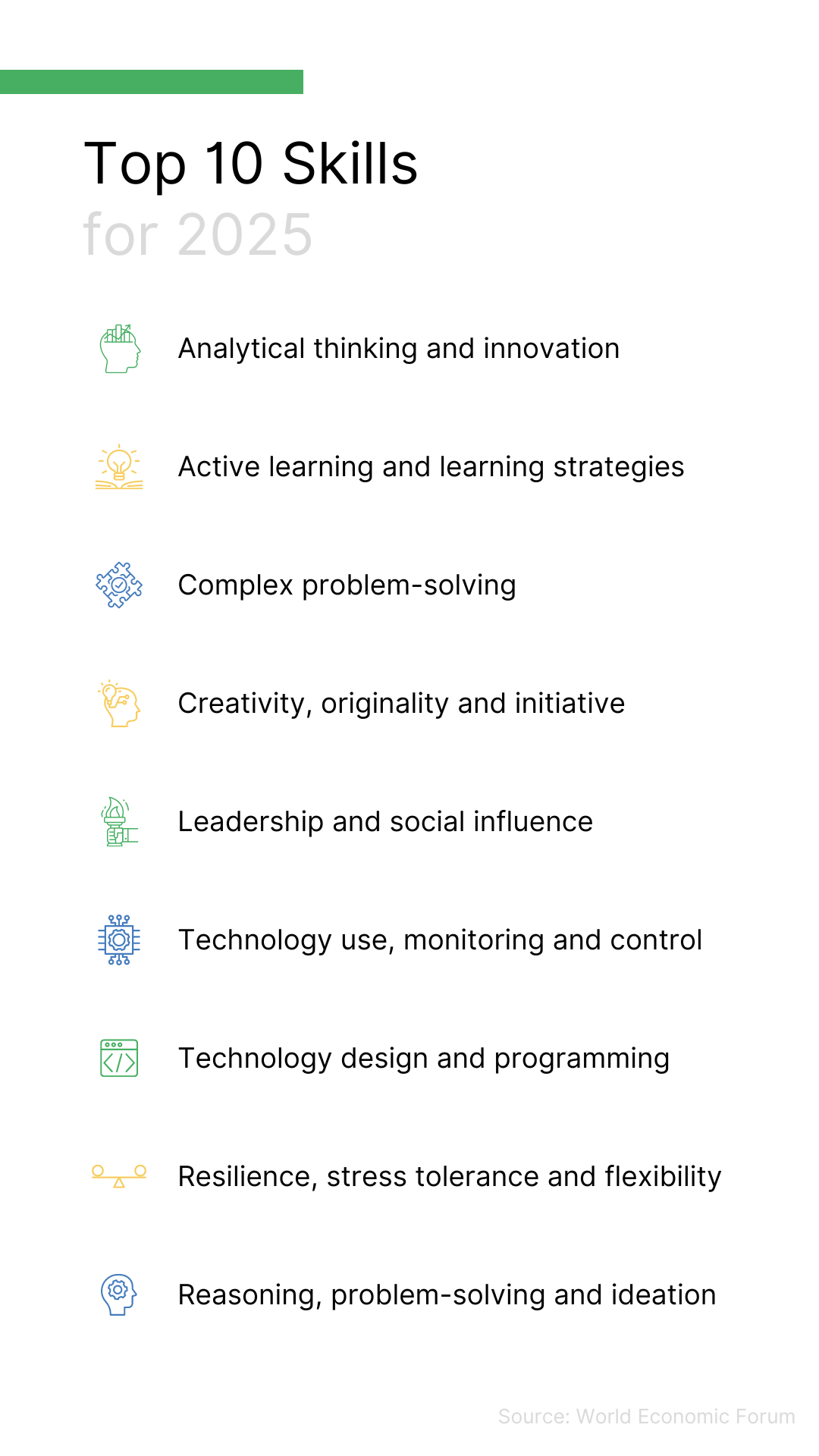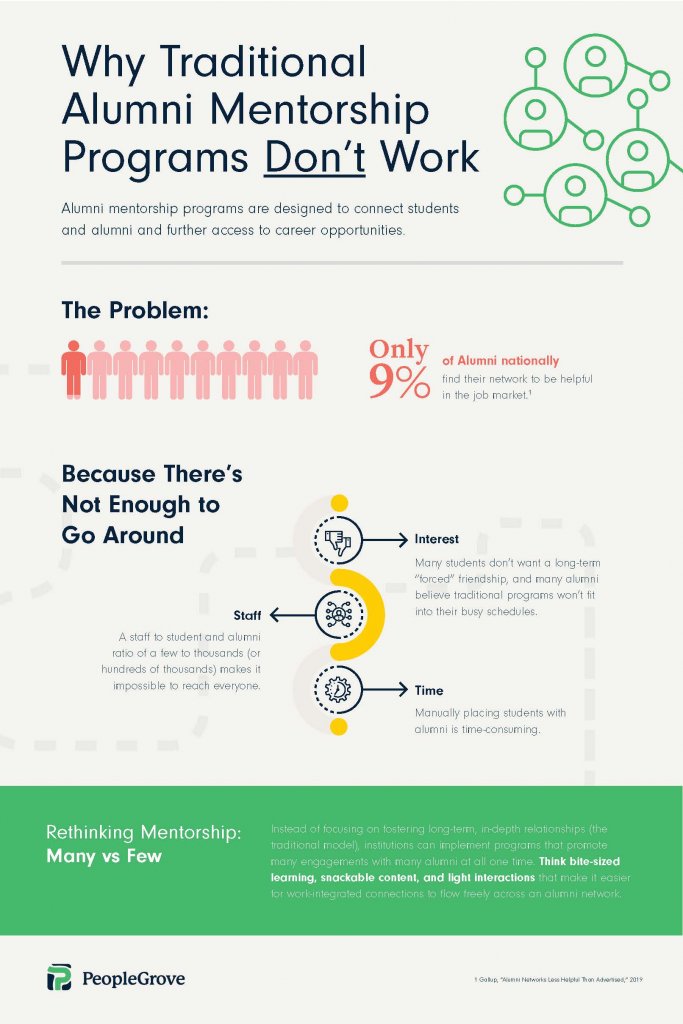Students & Alumni
A Vision of the Future for Students
Leveraging Stories to Teach Students How Their Major Builds Transferable Skills As outlined in our recent e-book, “The Learner First […]
Students & Alumni
Leveraging Stories to Teach Students How Their Major Builds Transferable Skills As outlined in our recent e-book, “The Learner First […]

As outlined in our recent e-book, “The Learner First Approach,” the conversation around the value of higher education has gotten louder and louder since the Covid-19 pandemic. So much so that metrics like ROI that were once fringe in the discussion have suddenly become front and center.
And while organizations like Georgetown University’s Center on Education and the Workforce look into the net present value of degrees from particular schools, others are digging even deeper to look at the return on investment based on major.
The Federal Reserve Bank of New York released a study breaking outcome by major as part of a larger report on “The Labor Market for Recent College Graduates.” This study looked at things like Unemployment Rate and Median Wage by Career Stage. Unsurprisingly, this led to stories in national media outlets like “How much will you make in your 30s and 40s? Here are the best- and worst-paying college majors.”
Are these types of reports helpful for students when choosing what to study? When put in the right context, they certainly have some value.
What context, you ask? Good question.
How many of us actually work in a role or field closely related to our course of study in college? Statistically, not many. Past research says only 27%.
In today’s market, this makes a lot of sense. For the vast majority, career paths are anything but linear. Graduates are likely to encounter many twists and turns throughout their journey. An entirely new industry might emerge and be the perfect fit for someone’s passion and drive. Or the market may take an unexpected turn and put someone’s chosen field at risk. And let’s not forget about the predictions about the impact of automation. Even those who select a specific course of study and know exactly what they want to do, may find themselves in need of a new direction through no fault of their own
So while selecting a major is a big deal, it won’t make or break someone’s career. What can determine someone’s career is how they approach that major and whether they can learn the right skills in their study.
Those skills are not the “hard skills” that a learner might pick up from the major. Rather, they are skills that are transferable across industries and functions. Recognizing this, the World Economic Forum outlines 10 of these skills that workers need to be successful. Things like “Active learning and learning strategies,” “Critical thinking and analysis,” and “Complex problem-solving” are not confined to one course of study. But students should be able to recognize how and why they are building those skills in the moment rather than reflecting years later.

Imagine the beleaguered History or English major confidently responding to the dreaded “what will you do with that major?” question by describing how their Jefferson’s America class has helped them learn “Leadership and social influence.”
To provide this for students, you need to give them a way to look into the future. You need to show them what is possible.
At PeopleGrove, we rely on social capital to provide that crystal ball. Alumni are the best resource for students to learn what’s just ahead of them. It’s why the large majority of connections on our platforms happen between learners separated by just 3-5 years.
And while major and course of study are ways that we guide learners towards discovering careers, we also incorporate the learners’ passions, what they’re good at, and what they want to learn into our smart technology to provide a personalized experience where value is immediately accessible and clear.
Now imagine meeting with a student who is discussing their course of study. They are interested in declaring an International Business major. Certainly a major where it’s pretty easy to connect the classroom with the career. But dig a little deeper and that’s really all the student is after, the first job out of college. There is no thought beyond that yet.
That student’s homework: explore the careers of alumni in PeopleGrove who majored in International Business and share that student’s passion for Being Creative and Learning New Things, as selected in their PeopleGrove sign up. They can watch short videos from those alumni answering simple questions, explore their career path, and review their resume. Ultimately, their homework is to reach out to three of those alumni and have conversations about how their International Business degree helped them build the skills they needed to navigate their career.

The benefits here are tremendous. Not only are you helping these students gain a more informed perspective on their choices, but you are also helping them begin to build the necessary social capital and Super Mentors that they need to open doors to all sorts of wonderful opportunities.
For more on PeopleGrove’s Learner First Approach and why career outcomes are core to the new definition of student success, download our free E-Book.
Subscribe to our newsletter to be one of the first to be notified of the release of Super Mentors, a new book written by Professor and Author Eric Koester in collaboration with PeopleGrove, publishing this spring.